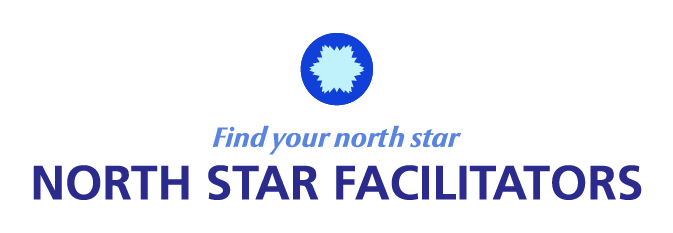What About Having Culturally Competent Meetings that Rock?

In April we started our first in a three part series of free webinars called “Meetings That Rock”. I realized that in the promotional video that I made some cultural competency mistakes. A colleague talked about this with me and it was embarrassing that after all my cultural competency training and quest to be a better ally that I made so many assumptions out of my own dominant[1] framework.
I’d like to take a moment to reflect with you on the true nature of Meetings That Rock. True meetings that rock are also cultural competent meetings. Those two things are not mutually exclusive. For me a meeting that rocks is one that is incredibly inclusive and diverse so I want to clarify that up front. If you weren’t from the dominant culture, what I described as the 5 characteristics of Meetings That Rock could be interpreted as Meetings That Stink (except for those in power). So let’s go over those 5 points again and make those clarifications. And by the way, here is the link for the new video that covers information about our full virtual summer intensive course. At the end of the video, we’ve included four brand new “Tips of the Day”.
The first point I said about that Meetings That Rock was that:
- Everyone that you want to show up, shows up. Now, reread this from a meeting participant who doesn’t have much power in the organization or society. They might not have been invited to the meeting because no one “wanted” them to show up. If you are the person in power, that original phrase probably sounded pretty good. You only got the people that YOU wanted. But whose voices might you be missing if you are not reaching out to many members of your organization that typically have less power or whose voices are marginalized?
What I might have said instead is:
“Everyone who has a stake in the meeting is invited and shows up.”
In a more equitable organization, you want diverse voices and perspectives to be heard at your meetings. So, in addition to this new phrase I would add:
“You welcome people to your meetings even if you’re not completely comfortable with them or their views yet.”
The second point I said about Meetings That Rock was that:
- Everyone shows up on time. Now, reread this coming from the perspective of someone who does not follow the time oriented mode of behavior of some countries. Showing up on time might NOT be an important characteristic for a meeting that rocks for them. So to be more inclusive, I would say instead:
“Everyone shows up in timing that is appropriate to your culture.”
If you are the facilitator it is good to show up early and spend whatever time is appropriate and relevant to creating the conditions of safety and comfort for your group needed. This might include warmly greeting people as they come in, undistracted and present for whatever mood or energy they show up with.
Thus the importance of cultivating presence practices with yourself such as constructivist listening, meditation, singing, prayer, journaling, emotional freedom technique (EFT), other emotional healing modes, etc. See suggested modules below for more on these or do a internet search on these terms to learn more.
The third point I said about Meetings That Rock was that:
- Everyone makes relevant and timely contributions. Again, from someone who rarely contributes because of the power imbalance in the room/organization, the part about “relevant and timely” can also be viewed as a dominant culture perspective. Who decides what is relevant and timely? Usually the meeting leader! Scenario: A person whose voice has never or rarely been heard in your organization tries speaking up. You as the facilitator don’t understand it. You might pretend to understand and then move on. In other words, on the spot, you decide this is a not a relevant or timely point of view. The person once again experiences that the “dominant culture” prevails and in their mind they decide that they may as well give up trying to contribute.
So one easy and quick tip. Just ask at this point, “Can you say more about that?” in a neutral and interested tone of voice. Then, just listen. It could be the most valuable moment in the meeting and you just created space for it with this question. To sum up, I might say the more culturally competent characteristic of Meetings that Rock is:
“Everyone knows they can offer an idea and be respectfully heard”.
An ICA[2] ground rule says it all too: Everyone will hear and be heard”.
The forth point I said about Meetings That Rock was that:
- Everyone laughs and has a good time. I would say instead:
Everyone laughs and has a good time but NOT at anyone’s expense. Often meeting humor can be a thin disguise for racism, ablism, ageism, or some other form of institutional oppression. As the meeting leader, you need to notice when a joke might be “off”. A tactful way of checking is by saying “There is something about your joke or story which I am not sure about. Can I check something out with you?” And then, even if no harm was intended, at least the person who shared the inappropriate joke or remark is now aware that those types of remarks will be questioned in the future.
The fifth point I said about Meetings That Rock was that:
- The meeting is over in less than an hour and everyone walks way knowing exactly what to do. For many business meetings in various parts of the world, this may be an appropriate length of time in most instances. Sometimes though, the heart of the meeting is never allowed to emerge if you always end them at 1 hour. Again, use your judgment. If something really important starts to surface toward the end of the meeting, you can ask – “Can we all agree to stay a bit longer as something very important seems to be happening. It would be a shame to not hear it fully now”.
In summary – there is no one way to have a Meeting That Rocks. It is important to create a meeting atmosphere that encourages every voice to be heard. It is why I entered the profession of facilitation.
Our second webinar on May 3, 2013, Moving from Monologues to Dialogues, talks about power imbalances in the room and ways to deal with it. You can access the recording here after May 3rd here. Please keep thinking about this topic with me. I welcome your insights.
Cultural Competency/Presence Resources
You might enjoy these e-learning modules to learn more. Please put the one on presence and two on cultural competency/ multi-cultural etc.
 |
 |
 |
And this TedTalk by Nanci Luna Jimenez on the concept of Power and Dominance.
www.youtube.com/watch?v=IRHOfm4mRpI
[1] Dominant culture refers to the people or groups that have the strongest economic base, social privileges, status, legal and political power base in an a region, country, organization or society as a whole. It often does not refer to the majority population.
[2] ICA stands for the Institute of Cultural Affairs, an organization dedicated to participation.

